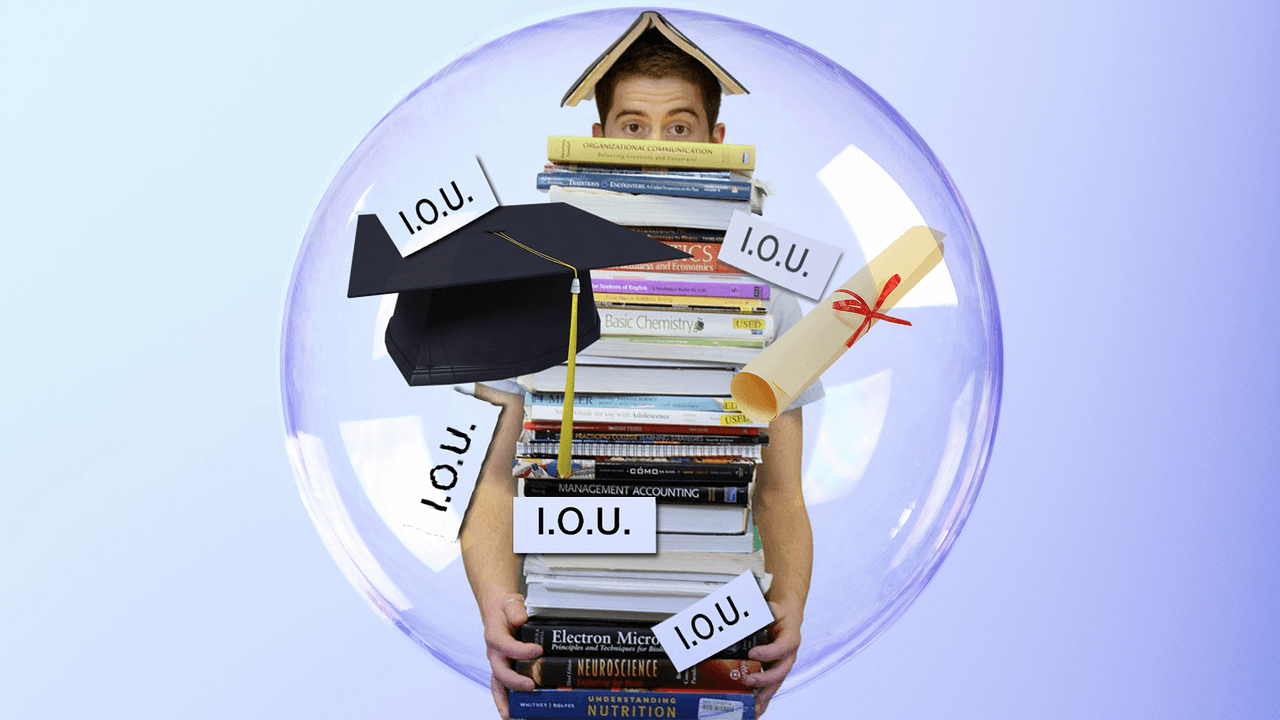Student-centric advice and objective recommendations
Higher education has never been more confusing or expensive. Our goal is to help you navigate the very big decisions related to higher ed with objective information and expert advice. Each piece of content on the site is original, based on extensive research, and reviewed by multiple editors, including a subject matter expert. This ensures that all of our content is up-to-date, useful, accurate, and thorough.
Our reviews and recommendations are based on extensive research, testing, and feedback. We may receive commission from links on our website, but that doesn’t affect our editors’ opinions. Our marketing partners don’t review, approve or endorse our editorial content. It’s accurate to the best of our knowledge when posted. You can find a complete list of our partners here.
What Happens to Loans if You Drop Out of College?
 By
Kayla Korzekwinski
By
Kayla Korzekwinski 
Kayla Korzekwinski is a Scholarships360 content writer. She earned her BA from the University of North Carolina at Chapel Hill, where she studied Advertising/PR, Rhetorical Communication, and Anthropology. Kayla has worked on communications for non-profits and student organizations. She loves to write and come up with new ways to express ideas.
Full BioLearn about our editorial policies

Maria Geiger is Director of Content at Scholarships360. She is a former online educational technology instructor and adjunct writing instructor. In addition to education reform, Maria’s interests include viewpoint diversity, blended/flipped learning, digital communication, and integrating media/web tools into the curriculum to better facilitate student engagement. Maria earned both a B.A. and an M.A. in English Literature from Monmouth University, an M. Ed. in Education from Monmouth University, and a Virtual Online Teaching Certificate (VOLT) from the University of Pennsylvania.
Full BioLearn about our editorial policies

There are several reasons a student may choose to withdraw from college, and it can come with a lot of questions. If you have loans, you may wonder what happens to student loans when you drop out. Any debt will still be owed, but you have options that can relieve the pressure of debt. Continue reading to learn more about what happens to your student loans if you drop out of college.
Don’t miss: What to consider when you’re thinking of dropping out of college
What happens to federal loans if you drop out
Federal student loans that were disbursed to you must be repaid if you drop below half-time enrollment or withdraw from college before completing your degree. The school will notify your loan servicer about the status change, and your loans will enter repayment.
Most federal loans have a 6-month grace period, which starts when you leave school. During this time, monthly payments are not required. However, if your loans are unsubsidized, they will accrue interest during the grace period. It can be worthwhile to make small payments on your interest while in the grace period.
The only federal student loans that don’t have a grace period are PLUS loans–repayment begins as soon as they are disbursed. Graduate students with PLUS loans can request a 6-month deferment on their PLUS loans after leaving school with no consequences. Additionally, parents with PLUS loans can request that same grace period when their student leaves school.
If you received federal aid for the next year, but don’t plan to return to school, you have 120 days to cancel the disbursement before you’re on the hook to repay it.
When your loans enter repayment, you’ll have to complete exit counseling. This will inform you about your repayment options and terms.
Related: Definitions of key student loan terms
What happens to private loans if you drop out
Like federal student loans, private loans enter repayment when a student leaves school or drops below half-time enrollment.
Depending on your lender, you may or may not receive a grace period. Interest will accrue on your private loans during your grace period (if you receive one). Before dropping out of school, be sure you know the terms of your private loans so that you’re ready to start repayment.
Also see: Grants to pay off student loans
Student loan deferment
Many students leave college due to financial or personal issues, which can make it difficult to repay your student loans.
If you’re dropping out because of hard times, it is possible to request a deferment on your federal student loans. Student loan deferment is a temporary suspension of your monthly student loan payments. Keep in mind, though, that interest will accrue on unsubsidized federal loans during deferment. This will cause you to pay more over time. Students must request deferment by submitting an application with the Department of Education.
Most private lenders offer deferment in a variety of situations. Check with your lender to learn your options if you’re not ready to begin repayment.
Additionally, returning to school will put your student loans back into deferment. This is also true if you decide to attend a trade school. For example, Sallie Mae offers deferment when students return to school or enter an internship, fellowship, clerkship, or residency program.
See also: How to get your student loans deferred
Other options
Dropping out of college with debt can be stressful, but you have some additional options for managing student loan repayment.
For federal loans, if you can’t afford your fixed monthly payment under the standard 10-year plan, you can enroll in an income-driven repayment plan (IDR). There are 4 IDRs. Each bases monthly payments on your annual income. If your monthly student loan payments are too high, one of these plans may help you get a lower amount. Payments can even be as low as $0!
Private loans can be refinanced to get a single monthly payment and to lower interest. Keep in mind that refinancing federal loans will cause you to lose access to benefits such as IDRs and Public Service Loan Forgiveness.
Also see: Public Service Loan Forgiveness: What it is and how it can help you
Debt is still owed
Bottom line, your student loan debt is still owed if you don’t complete your degree. Loans will not be canceled because you didn’t get the education you planned. Use this advice to prepare for your student loan repayment!
Frequently asked questions about dropping out of college and student loans
Will I lose student loan money if I drop out of college?
Do my loans enter repayment if I take a semester off?
Do I have to repay my loans if I re-enroll in college?
Private loans typically work the same way, but be sure to check with your loan servicer, as terms vary by lender.
Do I have to pay back my Pell Grant if I drop out?





